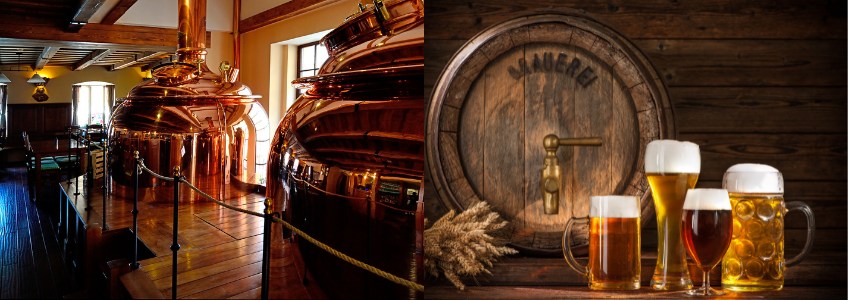
Introduction
As the brewery industry shifts toward premiumization, operational excellence becomes a critical factor in maintaining competitiveness.
With the Indian beer market projected to grow at a compound annual growth rate (CAGR) of 8%, breweries are not just increasing production volumes—they are elevating quality standards, optimizing operations, and managing resources more efficiently to meet premium market demands.
This shift requires breweries to continuously improve processes, reduce waste, and ensure sustainability, all while meeting the rising expectations of discerning consumers.
In this post, we will discuss the importance of premiumization in the brewery industry, the driving forces behind it, and how breweries can adopt operational excellence practices to thrive in this premium space.
What is Premiumization, and Why Does It Matter?
Premiumization refers to the process of enhancing a product’s value by emphasizing its superior quality, exclusivity, and craftsmanship.
In the brewery industry, it manifests through the production of high-end beers that demand higher price points, offering consumers a premium experience in terms of flavor, ingredients, and brand appeal.
From an operational excellence standpoint, premiumization is about optimizing every step of the value chain—from sourcing high-quality raw materials to implementing lean manufacturing principles in production.
Understanding and integrating premiumization into brewery operations ensures that breweries not only meet but exceed customer expectations while improving efficiency and profitability.
Premiumization in beer is typically seen in the following categories

1. Craft Beer: Produced by smaller, independent breweries with a focus on traditional methods and unique flavors, craft beers require operational precision to maintain consistent quality at scale.
The global craft beer market is expected to grow at a CAGR of 10% between 2023 and 2032, highlighting the importance of operational excellence to meet increasing demand.
2. Import Beer: Import beers, known for their exclusivity, must maintain high standards throughout production and supply chains to retain their premium status in international markets.
3. Specialty Beer: Specialty beers often include rare ingredients or complex brewing techniques, requiring innovative processes and meticulous quality control to maintain consistency while minimizing waste.
Driving Forces Behind Premiumization and Operational Excellence
Several factors are driving premiumization in the brewery industry, each of which presents opportunities for operational excellence.
1. Changing Consumer Preferences
Today’s consumers demand quality, variety, and innovation in the beers they drink. Breweries must implement continuous improvement strategies to deliver consistent quality while maintaining flexibility in production to meet changing market preferences.
Operational excellence methodologies such as Six Sigma can help breweries eliminate defects, ensuring consistent flavor and quality.
2. Rising Disposable Income
As disposable income increases, so does the willingness to invest in premium products. To capitalize on this trend, breweries must improve efficiency without compromising on quality, using lean principles to optimize production lines and reduce bottlenecks.
3. Access to Information
Informed consumers are more discerning, often scrutinizing how beer is produced.
Operational transparency, sustainable practices, and quality certifications can be part of a brewery’s operational excellence framework to build trust and brand loyalty.
4. Social Media Influence
The growing influence of social media demands agility from breweries. Quick response times to market trends and consumer feedback require streamlined operations and agile supply chains.
The ability to scale production efficiently while maintaining premium quality is a hallmark of operational excellence.
Operational Challenges in Premiumization
Premiumization also presents several operational challenges, which must be addressed through robust operational excellence practices.

-
Increased Competition
As more breweries target the premium beer market, competition intensifies. Breweries must differentiate themselves through operational efficiency, product innovation, and continuous quality improvement.
Lean Six Sigma tools can help eliminate waste, reduce lead times, and enhance product differentiation.
-
Cost of Premium Production
Producing premium beer can be resource-intensive, requiring top-quality ingredients and advanced brewing techniques. Cost control through effective supply chain management, just-in-time inventory practices, and energy-efficient brewing processes is essential to maintaining profitability.
This is where Total Productive Maintenance (TPM) and value stream mapping come into play, helping breweries reduce equipment downtime and optimize resource use.
-
Environmental Sustainability
The brewing process for premium beers often uses more resources, which can raise concerns about environmental impact. Breweries need to adopt green manufacturing practices and improve water and energy efficiency as part of their operational excellence strategy.
Implementing ISO 14001 standards for environmental management systems can help reduce waste and carbon footprints.
Opportunities for Operational Excellence in Premiumization
Operational excellence presents breweries with key opportunities to thrive in the premiumization trend

1. Process Optimization
By adopting lean manufacturing practices, breweries can streamline operations to increase efficiency while maintaining the high quality required for premium products.
Techniques like 5S and Kaizen can help reduce waste, improve equipment maintenance, and optimize the brewing process to meet demand without compromising on quality.
2. Advanced Technologies
Industry 4.0 technologies, such as IoT and AI, offer opportunities for breweries to monitor production in real-time, optimize resource allocation, and improve the consistency of premium products.
Predictive maintenance can also help reduce unexpected downtime, ensuring that production remains seamless.
3. Sustainability Initiatives
As premium consumers increasingly look for eco-friendly products, breweries can integrate sustainability into their operational excellence plans.
Water conservation efforts, energy-efficient brewing, and the use of biodegradable packaging can enhance brand value and reduce environmental impact.
4. Quality Control
Ensuring the highest level of quality for premium beers requires rigorous control measures. Implementing Six Sigma methodologies can help breweries identify defects and ensure consistent product quality across batches.
Statistical Process Control (SPC) can be used to monitor and control key production variables, ensuring consistency in flavor and quality.
Conclusion
As premiumization continues to shape the future of the brewery industry, operational excellence will be critical for breweries looking to thrive in this space.
From optimizing production processes and reducing waste to adopting sustainable practices, breweries must continuously improve their operations to meet the growing demand for premium products.
The combination of premiumization and operational excellence offers breweries the opportunity to differentiate themselves, achieve higher efficiency, and deliver consistently superior products.
Those that embrace these strategies will position themselves as leaders in the premium beer market for years to come.
For more insights on operational excellence and premiumization in the brewing industry, explore additional resources on our website.
If you are interested to achieve similar success stories, write to us!
